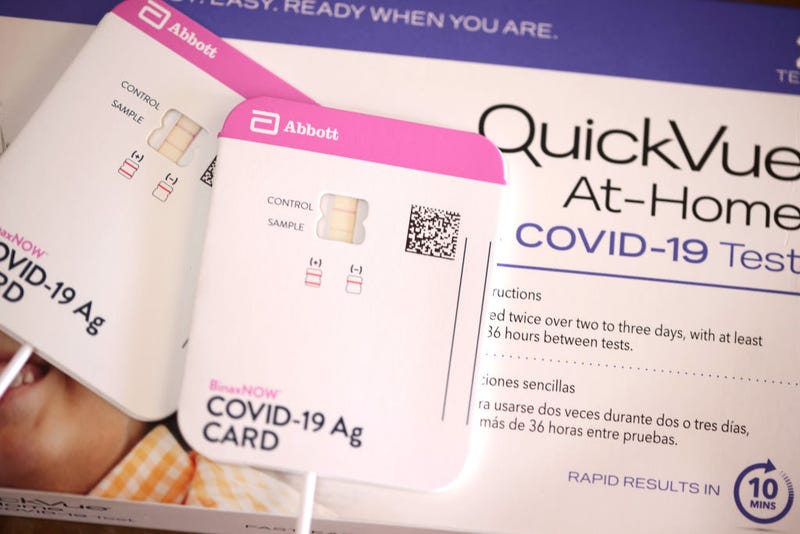
Can't find a COVID test? You're not alone. The tests are getting increasingly harder to find as cases of the coronavirus, fueled by the Omicron variant, continue to rise across the country.
Now, federal health officials are offering some advice for people searching for COVID tests amid the nationwide shortage.
First, there are two types of testing used to determine whether or not someone is positive for the virus: diagnostic tests and antigen tests.
The most widely used diagnostic test is PCR, which stands for polymerase chain reaction. It checks a sample -- either collected by a nasal swab or saliva in a tube -- for genetic material from the virus. These can be administered in a medical setting or by yourself at home, but every PCR test must be validated by a health professional. Results are confirmed within 48 hours.
An antibody test is similar to an at-home drug screen or pregnancy test, in which a liquid sample is placed on a reactive surface. If specific proteins associated with the coronavirus are detected in the sample, blood in this case, a result appears on a test strip in a matter of minutes. This is commonly referred to as the rapid COVID test.
While the PCR test is considered the most accurate, the director of the Centers for Disease Control and Prevention is recommending people take a less direct route to determining whether they have the coronavirus.
Instead of going straight for a PCR test, Dr. Rochelle Walensky recommends that people with symptoms first take an antigen test as a screening process.
"We do know that the most sensitive test you can do is a PCR test," Walensky told Good Morning America. "So if you have symptoms and you have a negative antigen test, then we do ask you to go and get a PCR to make sure those symptoms are not attributable to COVID."
Despite some reports that the antigen tests may not be as sensitive at detecting infection from the Omicron variant, Walensky said the rapid antigen tests are still reliable.
"They may not work as well as they have for the Delta variant," she said. "We still are encouraging their use."
Walensk added that the rapid tests work "quiet well" in settings such as higher education, where people are getting tested regularly.
LISTEN on the Audacy App
Sign up and follow Audacy
Facebook | Twitter | Instagram